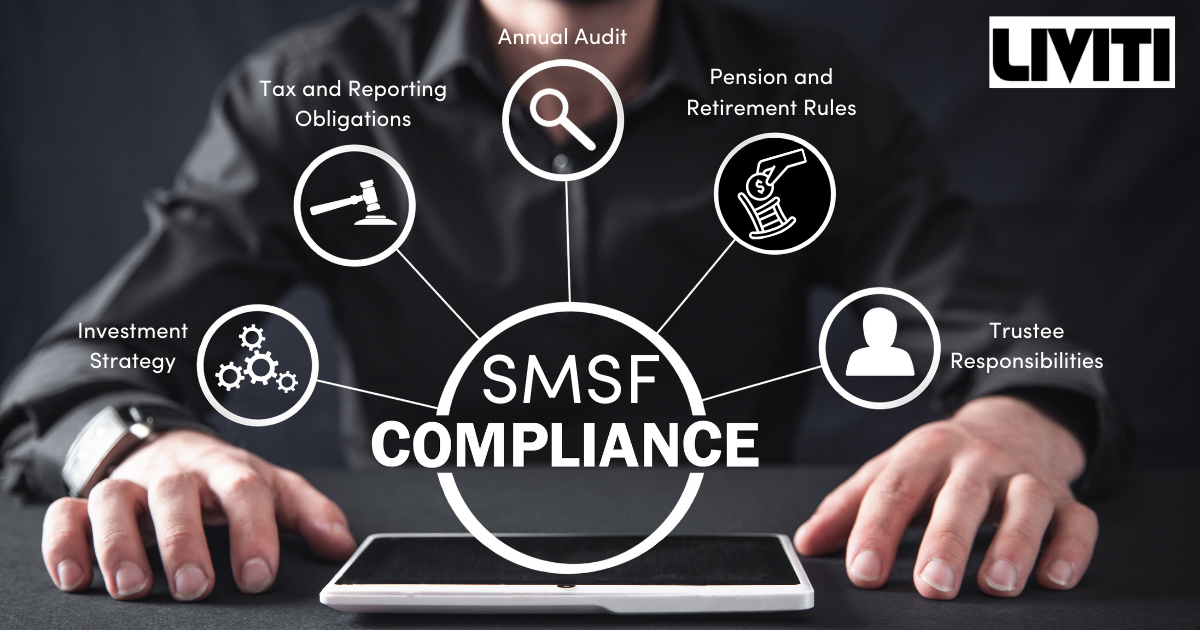The latest episode of the the Liviti Property Investor Playbook is a treasure trove of information for anyone interested in Self Managed Super Fund property investment or SMSF property investment. Featuring George from Blue Rock, an accounting firm based in Melbourne, this episode dives deep into the intricacies and benefits of using SMSF for property investment.
George shares his extensive knowledge on the subject, highlighting the growing trend of SMSF property investment, the SMSF tax benefits, SMSF compliance aspects, and his personal journey in property investment. If you are considering setting up an SMSF, this episode of Liviti property investor playbook offers a comprehensive guide that covers everything from essential documentation to typical timelines, ensuring a smooth establishment process.

Flexibility, Tax Benefits, and Long-Term Growth with SMSF property investment
SMSFs have gained popularity among property investors due to their flexibility and potential for wealth creation, especially through property investment. Unlike traditional super funds, SMSFs allow individuals to take control of their superannuation and make investment decisions that align with their financial goals.
George emphasizes the importance of understanding the significant differences between traditional super funds and SMSFs or Self Managed Super Funds. One of the standout points is the substantial asset difference, with the median asset per SMSF member being significantly higher than that of traditional super fund members. This indicates the potential for greater wealth accumulation through SMSFs.
For having clarity on what are the key differences between traditional super fund and Self Managed Super Funds, we have given a head to head comparison on the key feature differences between them.
Difference between traditional super fund and SMSF:
| Aspect | Traditional Super Fund | Self Managed Super Fund (SMSF) |
|---|---|---|
| Control | Managed by a professional fund manager or trustee. | Full control over investment decisions by SMSF trustees. |
| Investment Choice | Limited to a pre-set range of options chosen by the fund. | Wide variety of investments, including property and shares. |
| Number of Members | Can have hundreds or thousands of members. | Limited to a maximum of six members. |
| Costs | Fees are usually percentage-based, depending on the fund size. | Costs vary but can be higher due to administration and setup. |
| Compliance Responsibility | Managed by the super fund provider. | Trustees are fully responsible for legal and tax compliance. |
The episode also covers the tax benefits of investing through SMSFs. George explains that SMSF income is generally taxed at a concessional rate of 15%, which can be further reduced to 10% for capital gains on assets held for more than 12 months. Additionally, in the retirement phase, capital gains can be entirely tax-free if the member’s balance is within the $1.9 million cap. This makes SMSFs an attractive option for long-term property investment, as the tax savings can significantly enhance overall returns.

Compliance is another critical aspect of managing an SMSF. George discusses the importance of adhering to SMSF regulations and ensuring annual audits to avoid penalties and maintain the fund’s compliance status. He stresses the need for a strong support network, including financial advisors and accountants, to guide SMSF trustees through the complexities of compliance and investment strategies.
Click here to listen to this Liviti Property Investor Playbook podcast episode.
For those who are new to SMSFs, the episode provides a step-by-step guide on setting up an SMSF. This includes gathering key documentation such as personal details, SMSF naming preferences, and borrowing structures if applicable. George highlights the importance of resolving any outstanding issues with the Australian Taxation Office (ATO) before approval to ensure a smooth establishment process. The typical timeline for setting up an SMSF ranges from two to six weeks, depending on the complexity of the individual’s financial situation.
Not sure about how to use home equti for smart property investment? Then read our latest blog on Unlocking the Ultimate Power of Home Equity for Smart Investments in 2024
Borrowing to buy property within an SMSF is another topic explored in detail. George explains the necessary steps involved, including setting up the SMSF before purchasing investment property and ensuring all transactions are conducted within the SMSF structure. He also discusses the separate treatment of SMSF loans from personal loans and the importance of consulting brokers and advisors to understand borrowing capacities and the types of properties best suited for SMSF investment.
Long-term investment strategies are crucial for maximizing the benefits of SMSF property investments. George recommends acquiring new properties to minimize maintenance issues and maximize ease of sale and rental appeal. New properties tend to have higher depreciation expenses, which can be claimed as tax deductions, further enhancing the investment’s overall returns. He also emphasizes the importance of having a knowledgeable team to navigate regulations and compliance, ensuring successful investment outcomes.

The episode concludes with practical tips for those interested in SMSF property investment. George highlights the significance of seeking proper advice and understanding whether SMSFs are the right choice for individual financial goals.
He warns against the common pitfalls of trying to navigate property investment without expert guidance, which can lead to purchasing the wrong property or making structural mistakes that need rectification. Ultimately, consulting with knowledgeable advisors is key to achieving successful investment outcomes through SMSFs.
If you are interested in how to use your tax to invest in property, then Liviti property experts’ guide can give you an outstanding property investment journey using your tax.

In summary, this episode of the Property Investor Playbook is a must-listen for anyone considering property investment through SMSFs. George’s expertise and insights provide a comprehensive guide to navigating the complexities of SMSFs, from setting up the fund to long-term investment strategies. With practical tips and valuable advice, this episode equips listeners with the knowledge needed to make informed decisions and maximize the benefits of SMSF property investment.
Don’t miss out on this enlightening discussion and start your journey towards successful property investment with SMSFs today!




